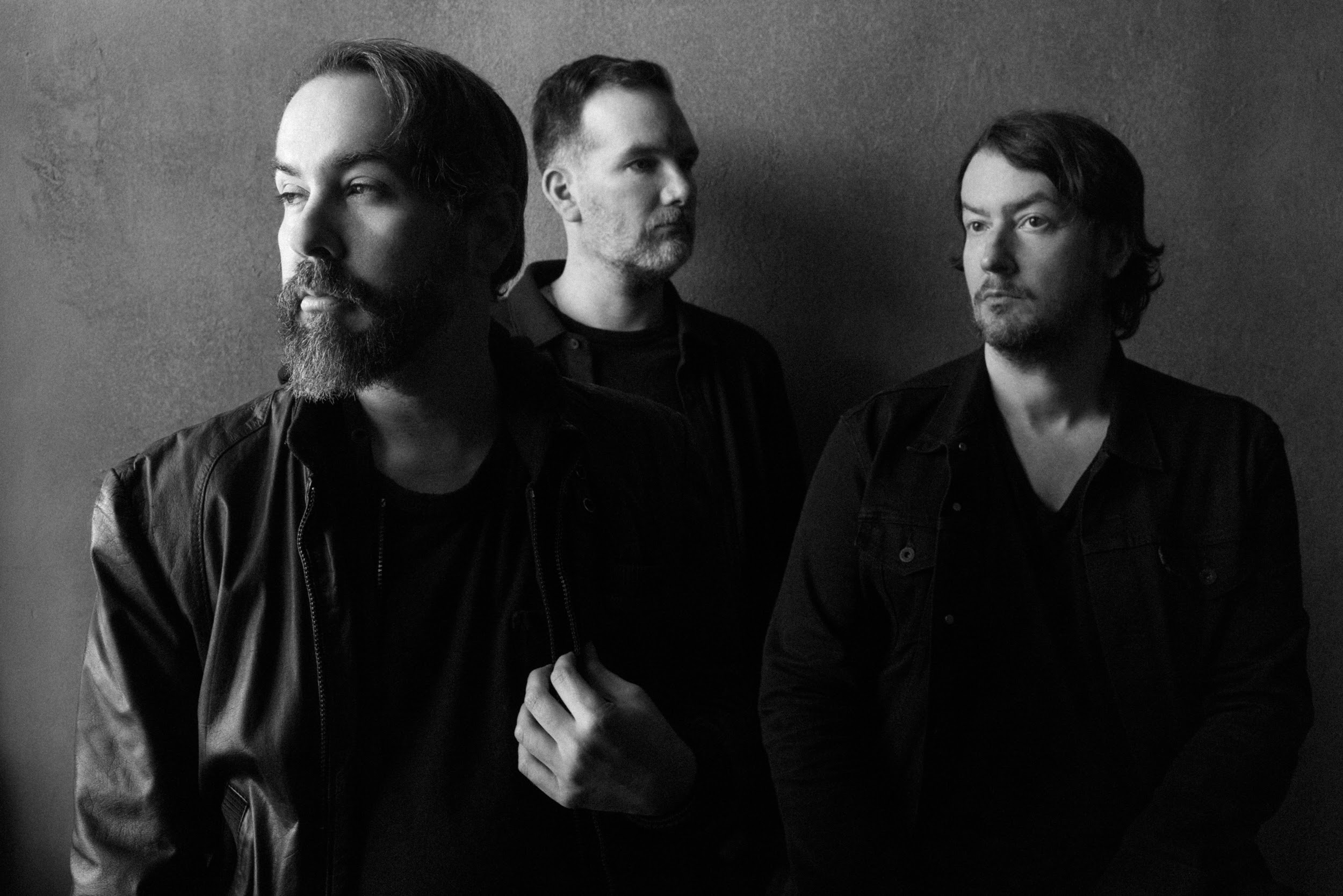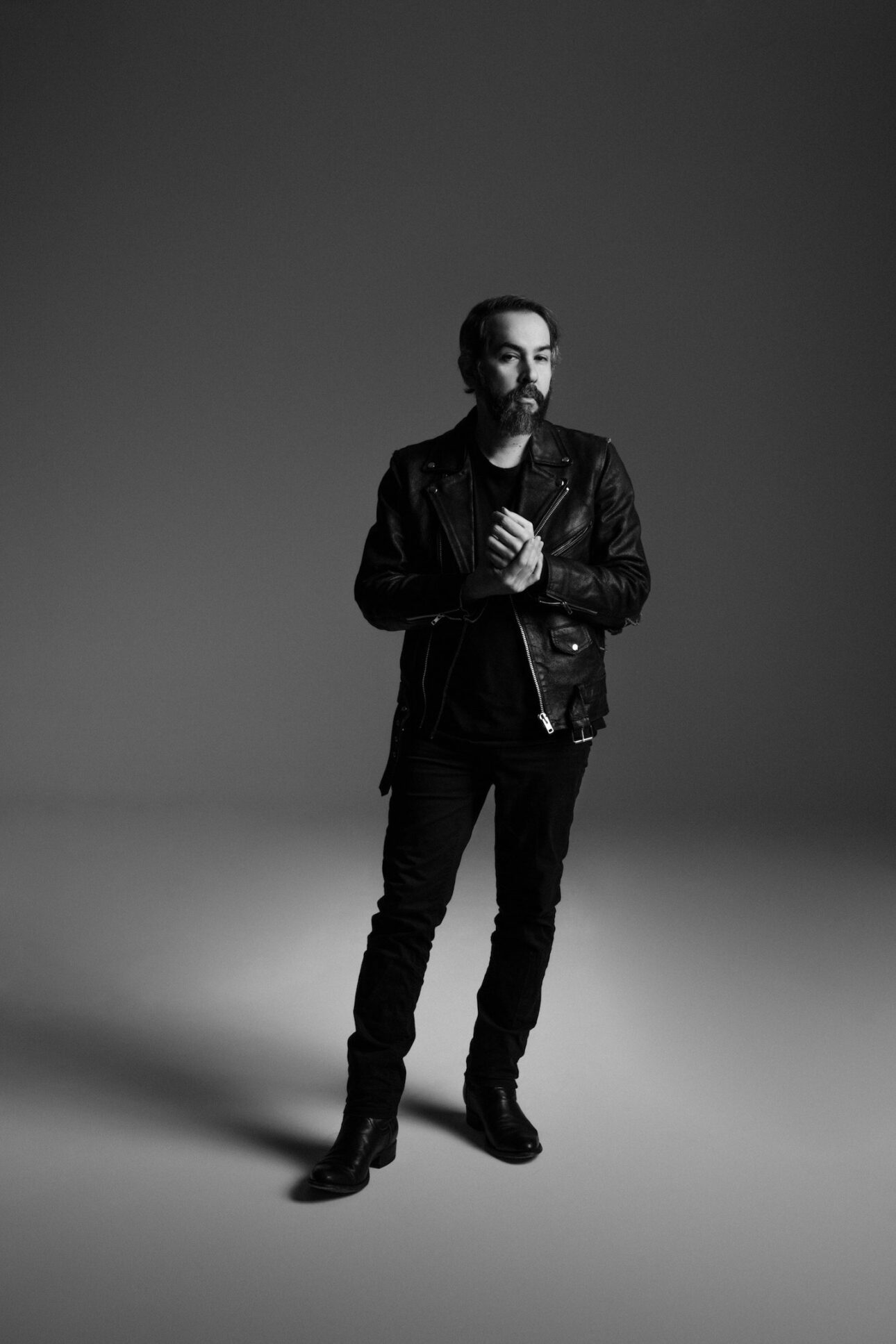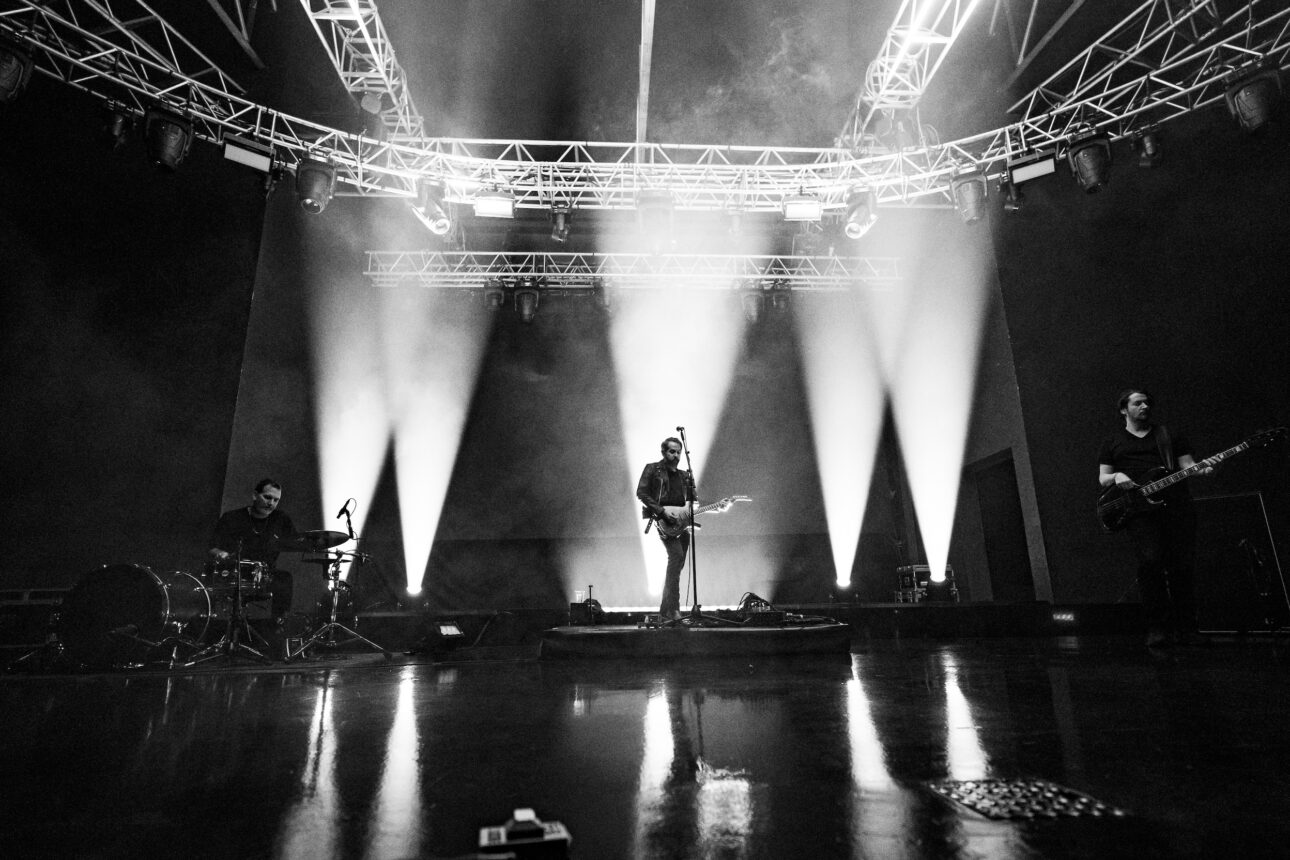
Cigarettes After Sex does not exist in space and time the way that most of us do.
They are everywhere. They are everywhen. They have their feet in the past, the present, and the future all at once. They are McConaughey behind the bookshelf in Interstellar, but with less yelling.
Their third album, X’s, just came out in mid-July, and the band is set to go on a world tour (more on that in a second). But Cigarettes founder, vocalist, guitarist, and all-around visionary Greg Gonzalez tells me that the fourth album is already pretty much done and dusted.
It’s August when Gonzalez and I catch up on Zoom. X’s is still cooling on the windowsill. I ask him when they recorded the new new album.
“Just, like, a week ago.”
X’s actually was sort of an outlier in the way that Gonzalez and Cigarettes like to work. He wants to strike while the iron is hot. He wants to record the band performing in a room together. The best take is chosen, and the recordings serve as real snapshots of the band in that moment.

For this release, Gonzalez wanted to take his time forming what he called a “longer chapter” within the context of the greater Cigarettes catalog—pulling together almost five years’ worth of emotions after 2019’s Cry, with much of the album’s narratives influenced by the bookends of a years-long relationship in Gonzalez’s life. The band also took extra care to get the sound, a specific product of retro influence, to exactly where they wanted it to be.
“It was supposed to sound tighter, kind of more like R&B,” he says. I assume it’s him, at least. His voice is disembodied. He doesn’t use his camera on the Zoom call, with only his name appearing in white over a black background. It’s not unlike the minimalist monochrome of every Cigarettes album cover.
“It was supposed to groove in a way that’s dancier too. And that actually took forever to figure out, to bring into this Cigarettes sound, because we tend to just do things live, and it’s not really produced in the studio much at all.”
Each album by Cigarettes After Sex traverses narrative time by telling stories through lyrics, and travels through decades of influence with different sounds—all part of Gonzalez’s idea of “dance music” through the years, in the sense that it is supposed to be a band that makes people dance, not capital-D Dance Music the way most people understand it now.
“I thought, ‘OK, how do I keep evolving the sound of Cigarettes?’” Gonzalez says. “And I thought, ‘OK, let’s just move to a different decade of dance music.’ The early stuff to me is kind of a late ‘50s, maybe early ‘60s kind of feel. [X’s] is more of, ‘All right, let’s do more of a ‘70s kind of feeling of that kind of dance music.’ And that’s more like Marvin Gaye, [and] the Bee Gees were even a big influence. ‘More Than a Woman’ was a big influence on this record, just the way that it grooves. The cool thing about that song is that there’s no drum fills in it, like us.”
A modern take on a retro feel. Feet firmly in two places in time.
As for space, Cigarettes After Sex is hard to pin down in one location too.
The X’s tour poster looks more like a winning submission in the “who can name the most cities in the world?” competition, and it rivals the harmfully-jet-setting lifestyle of someone with an “Eras” tour.

After kicking off on August 31 in Montreal, the band will tour Canada down through the U.S. and end in Mexico City in October. Two weeks later they’ll start the European leg in Athens, ending November 21 in Portugal. They’ll take a break in December, but then play Hong Kong on January 9, making their way through Southeast Asia, India and ending with one gig in Dubai. After that, there are a couple more weeks worth of chilling (or maybe recording another album) before it’s off to South Africa, Australia, and New Zealand next March.
Unlike a lot of other bands, Cigarettes After Sex didn’t wait for any big break to come and give them permission to explore the world. Gonzalez had almost an evangelical mindset about it: Say yes to every opportunity, and get out there and play shows wherever they can, even if it means hellish tour schedules.
“When we first started touring, I was saying yes to every gig just because I was like, ‘Let’s just do everything we can do to get the word out,’” Gonzalez says. “And it all sounded fun to me too. Like, ‘Do you want to go to Tbilisi?’ Or places you’ve never heard of. Then we would, like, do a city like that and then jump to like Toronto, and then we’d be in South America.”
After YouTube and eventually TikTok noticed a couple of songs from the first two records, the band found themselves in larger rooms across the U.S., as well as big spaces that aren’t rooms at all, like Forest Hills Stadium. You can actually track their geographic and stardom trajectory on their site thanks to an exhaustive “past shows” list. Most cities show a jump from fairly large club/concert venues to having to work around the NBA/NHL schedule.
They were now on another plane of existence in showbiz, and then they were probably on another plane at the airport.
“I always envisioned this music was supposed to be on a huge world stage,” he says. “That was always the dream since I was a little kid, just because I was trying to emulate the artists that I loved as a kid, whether it was Metallica or Madonna or Queen or the Doors. Great music should be that huge. That’s just kind of what I thought about it. If it’s powerful, it’s going to reach a lot of people.”
Miraculously, the burnout hasn’t hit him at all yet. He has the energy of a preacher spreading a gospel he believes in.
“I guess since the cause feels good, and these are songs that I feel really deeply about, that kind of gives me a different pain tolerance to this stuff,” he says. “It feels so good to do this, it feels so good to play in front of these audiences, and it’s so cathartic. It’s such an emotional release to play these songs. And it’s a lot of adrenaline for me too. Knock on wood here, it hasn’t really gotten old or anything.
“It just feels exhilarating.”
To see our running list of the top 100 greatest rock stars of all time, click here.


